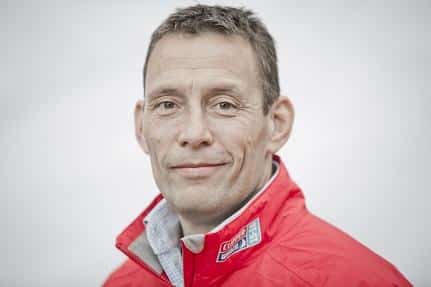Chris Talago chats with us about PR, passion, and leadership lessons from his Army days
Chris Talago was featured in the 2015 PR Week Global Power Book. As part of our #PRProSeries, Janie Emmerson, MD of Communications at Hanson Search, interviewed Chris to find out how he made it in the industry. 
Why did you get into communications?
It wasn’t planned. I grew up wanting to be a soldier. I joined the Army and spent about eight years there. When I left I didn’t know what I wanted to do. I applied for a whole range of jobs, everything from HR to project management and marketing. Eventually I got an interview at Racal Electronics, the company that made the radios I’d used in the army. I’d been heavily involved in secure communications the last few years I’d been in the Army, I knew the products they were talking about well, and I got the job off the back of that. They told me they could teach me about PR quicker than teaching someone about the products!
What personal attribute has most helped you succeed in your career?
I think my services background helped a lot. It gives you a certain approach to getting the task completed. It helps you develop qualities like initiative, drive, common sense and not taking yourself too seriously, or allowing yourself to be knocked off course. You develop good attention to detail and project management skills. It’s about getting the basics right. It’s worth remembering too that the Army is a people business. If you don’t get your leadership style right, you don’t last very long. If you have to rely on your rank to get people to do things you’ve already failed. Teams need to see the logic of your decision as well as the commitment of your delivery. It’s about how you communicate. Experience has also helped me understand the difference between management and leadership. For me, management is the system of governance and processes; leadership is the drive, energy and charisma which a team can buy in to and believe in. We can spend far too much time developing managers when we should be developing leaders. I’ve also benefited greatly from having experience working both agency side and in-house. Having been the in-house person, it’s far easier to understand what’s going through a client’s head, what’s frustrating them, what’s going on in their world that we don’t even know about. That wider perspective is really helpful. Too often we chase agency staff to work for us, but the cross-fertilisation of different in-house, agency and journalism expertise is very important. Different life experience is always beneficial. It all makes you a better consultant.
What would you say has been the biggest challenge that you’ve overcome?
Great work is rarely vanilla, yet there’s an aversion to risk, to piloting and trialing concepts or approaches which can hamper best value. That’s true of agencies trying to second-guess what each client will approve and of clients concerned about executive reaction. As an industry we need to be braver and more flexible in the way we create campaigns.
Who would you say has been the most inspiring person you’ve worked with?
Richard Poston and David Nicholas spring immediately to mind. I served a really good apprenticeship at Racal Electronics under them. There were also half a dozen people there who were all individually excellent at what they did; at understanding what was important, how to develop a campaign, and finding the stories. It was incredible. Later in my career, I was influenced by Tim Dyson and Sally Costerton. I learned different things from all of them, all very inspiring and different in their leadership styles. I’ve been blessed with working for, and with, some really talented people.
What is the best piece of career advice you’ve been given?
Do what you love. It sounds trite but you can’t fake passion. If you’re not enjoying it you’re not going to be as good as you can be. Understand the reality of the profession. If you’re not enjoying it, get out.
In ten years’ time, what do you think will be the biggest change in the global communications industry?
First is the approach to integrated communications. The skills you’re expected to master are far broader. While this makes it harder, it also makes it a brilliant time to be in the industry. We need to ensure we’re sourcing the right next-gen skills which means casting our net wider, working with academic bodies and encouraging non-traditional routes and hires into the industry. Even more important than developing an integrated methodology is coming together on measurement. Barcelona is a great start but there’s much more we need to do. Brands need standardized view of what ‘good’ looks like and a real understanding of how our work impacts both short term commercial performance and long term brand value. If we can collaborate on standards and compete on solutions there’s a real opportunity for communications to start gaining the recognition it deserves within the marketing mix.
What would you say are the three words that best describe you as a communicator?
Succinct. Blunt. Pragmatic.
Apart from your current role, what would be your dream role within communications?
I recently sailed from Cape Town to Australia – so I suppose the America’s Cup or Volvo 70 races. I’d also like to take an iconic British brand on to the global stage. As a country we have some incredible innovators and inventors that deserve to enjoy much greater success.
— Are you looking for your dream role?
We build relationships to support your career aspirations. With our expert recruitment consultants, we will help you make the right career move by finding the best role for you, at a company where you will thrive. Contact us for a confidential discussion and let’s see how we can help you transform your career.



























 Career Enquiry
Career Enquiry
